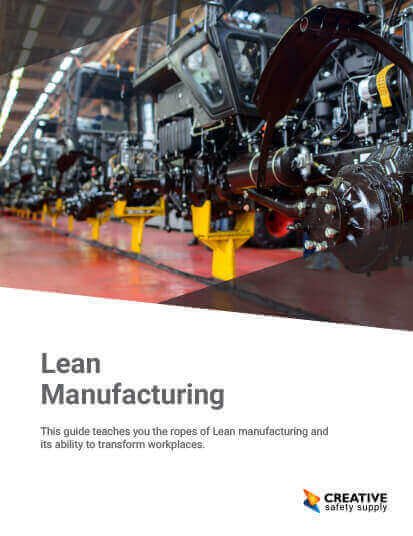
W. Edwards Deming played a hugely important role in the evolution of manufacturing following World War II and contributed to quality control, continuous improvement, and Lean manufacturing.
Something Deming taught is what is called the 14 Principles of Management. Applying these principles to management can bring a transformation through the whole organization. The 14 points Deming developed are:
- Create constancy of purpose: Businesses should strive for continuous improvement, look for long-term solutions, and work to predict and prepare for the future.
- Adopt the new philosophy: Focus on quality! Focus the organization on quality and meeting the needs of the customer first. It is important to embrace the new philosophy as it may bring major changes ahead.
- Cease dependence on inspection to achieve quality: Building quality into the product and process will eliminate the need for constant inspection on a mass basis.
- Minimize total cost and move toward single suppliers: Quality is rooted in consistency and moving to a single supplier will positively impact the variation on the parts being in the product.
- Improve constantly and forever: Continuous improvement is the name of the game. Managers should be constantly looking at systems and processes for areas to improve and should use Lean tools like the PDCA cycle or Kaizen.
- Use training on the job: It is important to train for consistency in order to reduce variation. Help workers understand how their role fits in the bigger picture and encourage employees to work together effectively.
- Implement leadership: Managers will need to do more than supervise, they will need to lead. Understanding employees and processes as well as encouraging workers to reach their potential is extremely beneficial for fostering a productive workplace.
- Eliminate and drive out fear: Worker's should feel confident and valued in their workplace. The shouldn't be afraid to suggest ideas or express concerns. Managers will need to take the leadership role by communicating and being approachable to the teams they work with.
- Break down barriers between departments: Each department in an organization is working towards the same goal. Foster collaboration and build a shared vision between departments to avoid the Silo Mentality.
- Get rid of unclear slogans and targets: It would be great to operate with the goal of zero defects in the process and product, but is it reasonable? Depending on the climate of the workplace, it could be beneficial to eliminate standards that cannot be reached.
- Eliminate management by objectives: Leadership is more effective than supervision! Try to eliminate management by numbers and focus on the processes rather than the people behind the process.
- Remove barriers to pride of workmanship: Employees who take pride in their work will be more productive and when employees are not competing with each other, quality will improve.
- Implement education and self-improvement: It is important to encourage workers to continue improving their skills and learning new skills. This will make them more adaptable to change and the overall workforce will be prepared for future challenges.
- Make "transformation" everyone's job: Inspire workers to participate in this transformation. If everyone took a step towards quality, you'll notice they all add up to impact the larger picture.
